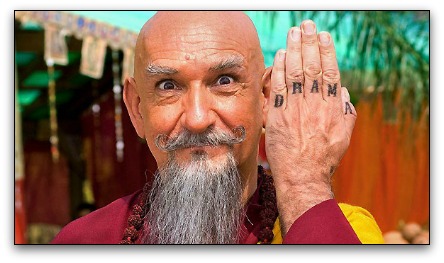This February marks the 200th birthday of the man whom some have called the greatest novelist who ever lived. All kinds of tributes are in the works for Charles Dickens’ bicentennial, including biographies, festivals and three new adaptations (one feature film and two miniseries) of his novels.
Turner Classic Movies is getting an early start on the celebration. The cable channel will be showing classic Dickens films every Monday night throughout the month of December. The lineup is a stellar one, including such well-loved movies as David Lean’s “Great Expectations” (1946), and both the 1938 and 1951 versions of “A Christmas Carol.”
Also noteworthy are the 1935 “A Tale of Two Cities,” featuring a justly celebrated star turn from Ronald Colman, and the 1958 “A Tale of Two Cities,” with a performance by Dirk Bogarde that is less revered but, to my mind, even better than Colman’s.
But if, by some misfortune, you had time for only one of these movies, I’d recommend you make it “The Mystery of Edwin Drood” (1935), which is having its TCM premiere at 8 p.m. EST tonight. The film has never had a DVD release; in recent years, the only way to see it has been to snag an out-of-print VHS copy from a vendor on Amazon or eBay. It’s a case of criminal neglect, if you ask me, for “Edwin Drood” is a film that deserves to be much better known than it is.
The magnificent Claude Rains stars as John Jasper, an apparently upstanding choirmaster in the fictional town of Cloisterham, with a carefully hidden opium addiction. Nor is that Jasper’s only secret. He’s obsessed with Rosa (Heather Angel), a seminary student engaged to Jasper’s own nephew, the Edwin of the title (David Manners). Both Edwin and Rosa, whose engagement was forced on them by their parents, are unhappy with the arrangement but hesitant to end it.
The situation grows even more strained with the arrival of a new young student from Ceylon, Neville Landless (Douglass Montgomery), who also falls for Rosa. Neville takes a violent dislike to Edwin, who, in Neville’s eyes, doesn’t sufficiently appreciate his own good fortune. With both Jasper and Neville consumed with envy and bitterness toward Edwin, the scene is set for a tragedy.
The tricky part about adapting “Edwin Drood” is that the adapter has to come up with a second half. The novel was left unfinished when Dickens died suddenly of a stroke in 1870, and we don’t know for sure what he was planning. Certain clues in the text point pretty clearly to whodunit, but that hasn’t stopped various armchair detectives from trying out different solutions to the mystery over the years. (A musical version, which ran on Broadway in the 1980s, allowed the audience to take a vote on it every night.) In fact, we don’t even know for sure that Edwin has been killed; in some versions, he reappears after having been given up for lost, to confront his enemies.
Not in this film, though. The screenwriters faithfully follow the direction that Dickens appeared to be going, and for the most part, their final act serves the story quite well. I say “for the most part” because their version forces Neville to disguise himself as an elderly man for much of the latter part of the film, a disguise that Montgomery doesn’t carry off convincingly. However, this is only a minor jarring note in an otherwise gripping conclusion, dominated by Jasper’s mental meltdown.
Even for those familiar with his work, Rains is a revelation as the tormented Jasper. His performance, augmented by artful lighting and costuming, makes it easy to see why “Edwin Drood” has always been grouped with the Universal Horror films, though it features no conventional monster.
“No wretched monk who ever groaned his life away in that gloomy cathedral could have been more tired of it,” Jasper says to Edwin early in the film, with a savage restlessness. “He could take to carving demons for relief, and did. What shall I do? Must I take to carving them out of my heart?”
It is not only Edwin’s tragedy, but also Jasper’s, that no one–not even Rosa, who has always feared him–fully recognizes the demon lurking inside the choirmaster until it’s too late.
Though Rains is unquestionably the highlight of the film, the rest of the cast, full of talented character actors from Universal’s heyday, ably follows his lead. Particularly good are E. E. Clive as the town’s mayor, Francis L. Sullivan as the kindly canon who is tutoring Neville, and Zeffie Tilbury as the creepy old woman who sells Jasper his opium.
And special mention should be made of Heather Angel, who manages to portray a spoiled, childish heroine (her full name, Rosa Bud, suggests a touch of self-parody on Dickens’s part) in a way that makes her genuinely appealing.
It’s high time that cable’s premier classic movie channel gave “The Mystery of Edwin Drood” a chance to be widely seen. This great adaptation of Dickens’s final work is a fitting kickoff for TCM’s celebration, and one that shouldn’t be missed.

COMMENTS
Please let us know if you're having issues with commenting.